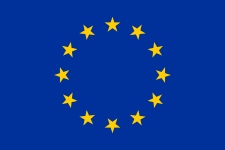“To use public office for personal enrichment is no longer immoral, but criminal and abominable” (Cicerón)
What is a PEP?

PEP is the English acronym for "Politically Exposed Person." It refers to an individual who currently holds or has held a significant public position or performs a role in a government agency (either domestically or internationally) or within an international organization. In Spain, these individuals are referred to as "People with Public Responsibility" (PRP).
Identifying a PEP in potential commercial or financial transactions is crucial for properly assessing the risk of activities such as bribery, money laundering, and preventing other crimes associated with public service.
Many countries have explicit definitions and regulations regarding who qualifies as a PEP. Below are some relevant legal references on PEPs from various jurisdictions:

USA Patriot Act
Section 312 (c) defines PEPs:
A. An individual who has been a person performing significant public functions or is closely related to one of these individuals.
B. An individual who is or has been a high-ranking government official of a foreign country.
C. An individual who is or has been a high-ranking government official of a public international organization.

Directive (EU) 2015/849 of the European Parliament on the prevention of the use of the financial system for the purposes of money laundering or terrorist financing
Art. 3.9 defines PEP as:
“PA natural person who is or who has been entrusted with prominent public functions and includes the following: heads of State, heads of governments; members of parliament or of similar legislative bodies; members of the governing bodies of political parties; members of supreme courts, of constitutional courts; members of courts of auditors or of the boards of central banks; ambassadors, chargés d'affaires and high-ranking officers in the armed forces; members of the administrative, management or supervisory bodies of State-owned enterprises; directors, deputy directors and members of the board or equivalent function of an international organisation."

The Money Laundering, Terrorist Financing and Transfer of Funds (Information on the Payer) Regulations 2017
Its Section 35 defines domestic PEPs as:
“An individual entrusted with prominent public functions, excluding mid or lower-ranking officials." (includes the same list of positions and profiles as Directive (EU) 2015/849).”
The definition of foreign PEP is contained in Section 6(5) of the UK's Bribery Act:
“Officials who hold a legislative, administrative or judicial position of any kind of a country or territory outside the UK. It also includes any person who performs public functions in any branch of the national, local or municipal government of such a country or territory or who exercises a public function for any public agency or public enterprise of such a country or territory.”
Depending on the type of responsibility exercised by PEPs, they can be classified into three different groups (*):
Group A
• Heads of State
• Members of parliament and courts
• Chiefs of the Army, the judiciary and officials of the highest rank
• Members of the governing bodies of political parties
• Members of boards of central banks
Group B
• Senior officials of the Army, the judiciary, high-ranking officials and Security Forces and Corps
• Prominent senior members of religious groups
• Ambassadors, chargés d'affaires and high-ranking officers
Group C
• Directors, deputy directors and members of the board or equivalent function of an international organisation
• Mayors and members of local and national assemblies
• Members of international and supranational organizations
Some legislations, such as the Spanish Anti-Money Laundering Act 10/2010, the USA Patriot Act, and the UK Bribery Act, include within the concept of PEPs their family members (spouses, parents, children, siblings) and close associates (those with close business relationships with PEPs).
(*) This is a classification that is more of a doctrinal nature and helps to understand the concept of PEP (although in some jurisdictions, the implications derived from relationships with one group, or another may differ).
From the jurisdiction’s perspective:
National PEP
Foreign PEP
International Organisation PEPs



